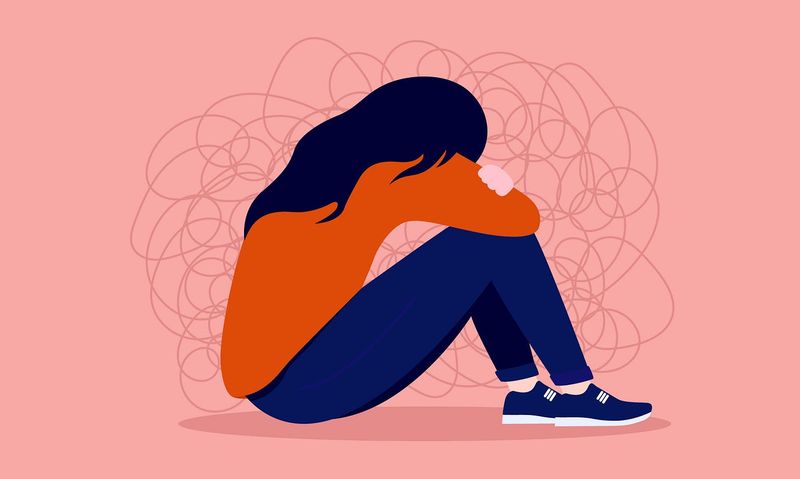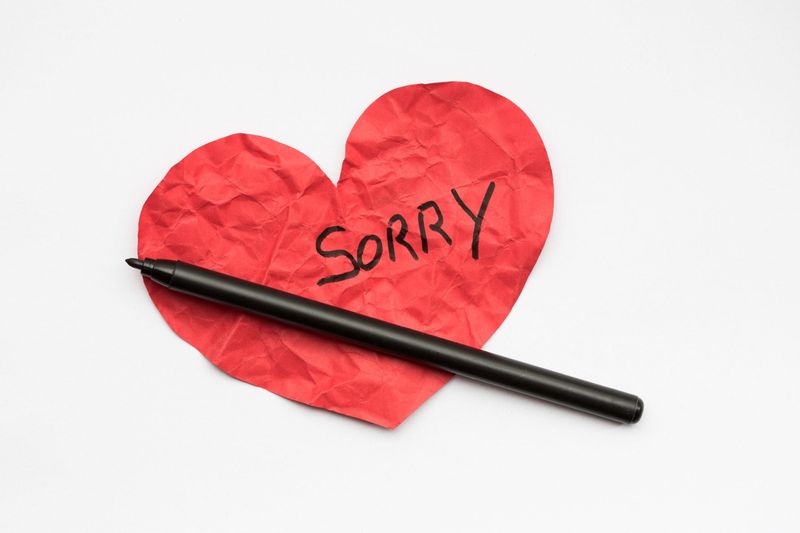People Who Hide Their Inner Pain While Seeming Happy Exhibit These 17 Behaviors
Some of the most outwardly composed individuals may be carrying the heaviest emotional burdens. Their pain, though hidden, often reveals itself through subtle behaviors that many overlook.
This article explores how those who seem happy often have silent cries for help woven into their everyday actions.
1. They’re always the ones checking on everyone else

Some people find solace in looking after others, ensuring everyone around them feels cared for. It becomes their way of hiding what’s really going on inside. By focusing on others, they divert attention from their own struggles, which can feel too overwhelming to address.
In a crowded room, they might be the ones silently observing, making sure every friend is smiling and every need is met. It’s not just selflessness; it’s also a carefully constructed shield.
They often become the go-to person for advice, the reliable friend who never seems too busy to listen. But underneath their attentive exterior lies a heart that rarely opens up about its own wounds. By concentrating on others, they avoid facing their own emotions, which might be too raw or complex to confront. This behavior can be both a strength and a silent plea for someone to notice their unspoken pain.
2. They deflect compliments or affection

Receiving compliments can be tricky for those hiding inner pain. When praised, they might brush it off with a laugh or quickly change the subject. The discomfort stems from an internal dialogue that rejects the positive affirmation, as their self-worth is often in question. Compliments can feel like a spotlight on areas they try to keep dimmed, making them uneasy.
Affection, too, can be hard to accept. While outwardly they might smile and say thank you, internally, there’s a struggle to reconcile the kind words with how they feel about themselves. This deflection becomes second nature—a way to maintain the facade of strength and contentment. By sidestepping genuine affection, they keep their walls intact, ensuring nobody gets too close to see the cracks beneath the surface.
3. They stay busy to the point of burnout

For some, constant activity is a refuge from the silence that might reveal their true feelings. They fill their schedules to the brim, taking on tasks and responsibilities beyond their limits. The busyness serves as a distraction, a way to avoid the stillness where their emotions might surface.
Yet, this perpetual motion comes at a price. Burnout often looms, but they push through it, wearing it like a badge of honor. By keeping themselves occupied, they create an illusion of a fulfilling life, while inside, there’s an emotional void. This behavior not only masks their pain but also continuously drains their energy, leaving them with little left for self-reflection or healing.
4. They joke about their pain—but never seriously talk about it

Humor can be a powerful armor for those grappling with inner turmoil. They might make light of their struggles, throwing in self-deprecating jokes that hint at deeper issues. It’s a strategy to address pain without delving into it, keeping the atmosphere light while subtly acknowledging their struggles.
In social settings, they might be the life of the party, known for their quick wit and humor. But these jokes often contain kernels of truth, veiled in laughter. It’s a safe way to communicate their distress without being vulnerable. By making others laugh, they create a buffer between their pain and the outside world, ensuring that their true emotions remain hidden from view.
5. They cancel plans last-minute with vague excuses

Making plans can be exhilarating, but following through can be daunting for those hiding their pain. They often cancel at the last moment, offering ambiguous reasons like sudden work or feeling unwell. It’s a way to protect themselves from situations where they might have to feign happiness.
The anticipation of social interactions can become overwhelming, leading to anxiety about maintaining their facade. The night before or the day of the event, they might feel drained, unable to muster the energy to put on a brave face. By withdrawing, they find solace in solitude, where they don’t have to pretend or explain. This behavior can be frustrating for friends, but it’s a self-preserving act for those living with hidden pain.
6. They avoid conflict at all costs

Those hiding inner pain often steer clear of conflict, fearing it might crack their carefully maintained composure. Confrontations can feel threatening, as they risk exposing vulnerabilities they strive to keep hidden. To them, peace is preferable to the anxiety that conflict brings.
In relationships, they might agree to things they don’t really want, just to avoid a disagreement. This avoidance can lead to feelings of resentment or being unheard, but it’s a trade-off they’re willing to make to maintain their emotional shield. By sidestepping conflict, they keep their emotions under wraps, ensuring their internal struggles remain concealed.
7. They seem calm—but never relaxed

The appearance of calmness can be deceiving, especially when it’s used to mask inner turmoil. While they might project an aura of serenity, relaxation eludes them. Their minds are often racing with thoughts and worries, hidden beneath a composed exterior.
This calm demeanor is a defense mechanism, helping them navigate the world without drawing attention to their internal chaos. In moments of stillness, the tension reveals itself, a reminder that their peace is only skin-deep. By maintaining this calm front, they keep their true feelings at bay, ensuring nobody sees the storm that simmers within.
8. They over-apologize for everything

Apologizing becomes a habit for those dealing with inner pain, a way to manage the guilt and insecurity that often plagues them. They say sorry for things that don’t require an apology, reacting as if they’re constantly at fault. This behavior stems from an internalized belief that they are a burden or inadequate.
Over-apologizing is a way to preemptively smooth over any potential conflict, ensuring they don’t disrupt the peace. It’s also a reflection of their struggle with self-worth, feeling the need to seek forgiveness even when none is needed. By apologizing excessively, they maintain control over their interactions, ensuring they uphold their facade of harmony.
9. They rarely ask for help—even when it’s clear they need it

Self-reliance becomes a mantra for those who hide their pain, even when they’re clearly overwhelmed. Asking for help feels like admitting defeat or burdening others, so they soldier on solo. This behavior reflects a deep-seated fear of being perceived as weak or incapable.
In situations where assistance would make a difference, they often decline, insisting they can manage on their own. It’s a way to maintain control over their narrative, ensuring they don’t reveal their vulnerabilities. By not asking for help, they keep their struggles private, reinforcing the image of competence and independence they work hard to project.
10. They keep their environment spotless or overly structured

Order and cleanliness become a refuge for those hiding emotional pain. Maintaining a pristine environment gives them a sense of control over their surroundings, compensating for the chaos they feel inside. It’s a sanctuary where everything is predictable and manageable.
An overly structured space reflects their need for stability, a buffer against their internal unpredictability. They might spend hours cleaning or organizing, finding solace in the routine tasks. This behavior is both a coping mechanism and a subtle signal of their need for control amidst emotional turbulence.
11. They laugh off compliments as if they’re jokes

Receiving compliments can feel like a paradox for those who struggle with self-worth. They tend to laugh them off, treating kind words as jokes rather than genuine affirmations. This reaction is rooted in disbelief, as they often feel unworthy of praise.
Laughing at compliments becomes a reflex, a way to deflect attention from their insecurities. While they might flash a smile, there’s often a disconnect between their outward response and their internal feelings. By treating compliments lightly, they protect themselves from facing the self-doubt that lurks beneath their cheerful facade.
12. They always show up strong for others—but collapse in private

Being the pillar of strength for others is a role that some take on, even when they’re struggling themselves. In public, they exude confidence and resilience, offering support and comfort to those around them. But when alone, the weight of their own emotions becomes overwhelming.
This ability to compartmentalize is both admirable and taxing. They prioritize others’ needs, pushing their own to the background. This behavior can lead to emotional exhaustion, as they have little left for self-care. By appearing strong, they protect their vulnerabilities, ensuring they remain hidden from view.
13. They give great advice—but never take it themselves

Offering wisdom and guidance comes naturally to those who hide their pain. They provide sound advice, drawing from their own experiences without fully addressing their own issues. This paradox is a way to avoid introspection, focusing on helping others instead.
Their insights often resonate with those seeking counsel, yet they struggle to apply the same principles to their own lives. This disparity stems from a fear of confronting their vulnerabilities, which advice-giving conveniently sidesteps. By helping others, they create a distance from their emotions, ensuring they remain unexamined.
14. They use “I’m just tired” to explain everything

The phrase “I’m just tired” becomes an all-encompassing explanation for those hiding their emotions. It deflects questions and concerns with a simple, universally understood excuse. This response shields them from probing inquiries, keeping their true feelings masked.
While fatigue might be genuine, it’s often a superficial answer that conceals deeper struggles. By attributing their behavior to tiredness, they avoid discussing the emotional exhaustion they experience. It’s a way to evade vulnerability, ensuring their pain remains unspoken and unseen.
15. They’re uncomfortable when someone shows them real care

Experiencing genuine care can be unsettling for those who guard their emotions closely. When someone shows sincere concern or affection, they might become uncomfortable, unsure how to respond. This unease stems from unfamiliarity with being truly seen and valued.
The kindness challenges their internal narrative of self-worth, leaving them feeling exposed. While they crave connection, the fear of being vulnerable often outweighs the desire for closeness. By distancing themselves from genuine care, they maintain their protective barrier, ensuring their emotions remain sheltered.
16. They avoid photos or memories of “happy” times

Photographs and memories of seemingly joyful times can be painful reminders for those hiding emotional turmoil. These snapshots capture moments of external happiness that might not align with their internal reality. Avoiding them is a way to protect themselves from confronting the disconnect.
The fear of acknowledging their past facade can be overwhelming, so they steer clear of visual reminders that might unravel their carefully constructed image. By not revisiting these memories, they preserve their emotional shield, ensuring their pain remains hidden beneath the surface.
17. They say “I’m fine” before you even ask

“I’m fine” becomes a rehearsed response for those concealing their inner struggles. They offer it preemptively, shutting down further inquiries before they begin. This automatic reply serves as a barrier, keeping emotions safely tucked away.
The phrase is both a reflex and a shield, protecting them from revealing vulnerabilities. While outwardly simple, it signifies a complex internal struggle with trust and openness. By insisting they’re fine, they maintain the illusion of stability, ensuring their true feelings remain undisclosed.







